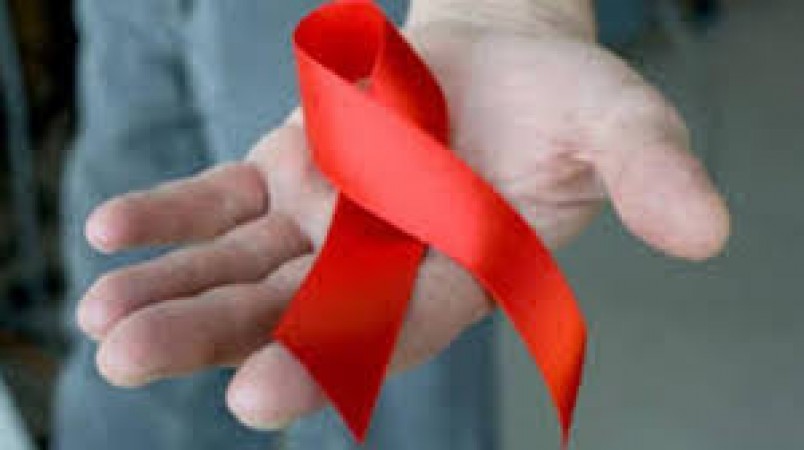
World AIDS Vaccine Day, observed on May 18 every year, is a crucial reminder of the ongoing fight against HIV/AIDS. This day underscores the need for a vaccine to prevent HIV infection, acknowledging the tireless efforts of researchers and advocates worldwide.
May 18 was chosen to commemorate the date in 1997 when then-President Bill Clinton gave a seminal speech at Morgan State University. In this speech, he called for a concerted effort to develop an HIV vaccine, highlighting the critical role of scientific research in combating AIDS.
The inaugural World AIDS Vaccine Day was observed on May 18, 1998. Since then, it has become an annual event dedicated to raising awareness about the need for a vaccine and honoring the work of scientists, volunteers, and community members involved in HIV research.
Despite advances in treatment and prevention, HIV remains a significant global health issue. Antiretroviral therapies (ART) have transformed HIV from a fatal disease to a manageable condition, but they do not cure HIV or prevent its transmission.
A preventive vaccine is seen as the ultimate solution to end the HIV epidemic. Vaccines work by preparing the immune system to recognize and fight off pathogens. In the case of HIV, a vaccine would ideally prevent the virus from establishing an infection in the first place.
HIV vaccine research has faced numerous challenges. The virus's high mutation rate and its ability to integrate into the host's genome make it a tough target. Early vaccine candidates showed limited success, often failing to provide significant protection.
Recent years have seen promising developments. The RV144 trial in Thailand, for instance, demonstrated modest protection against HIV, providing valuable insights for future research. New strategies, such as broadly neutralizing antibodies (bnAbs) and mosaic vaccines, are being explored to enhance vaccine efficacy.
Organizations like the International AIDS Vaccine Initiative (IAVI) and the HIV Vaccine Trials Network (HVTN) play a pivotal role in coordinating global research efforts. These organizations facilitate clinical trials and foster collaborations between scientists, governments, and communities.
Community involvement is crucial in HIV vaccine research. Volunteers participating in clinical trials contribute significantly to scientific progress. Additionally, raising awareness and educating the public about HIV vaccines can help dispel myths and encourage participation in research efforts.
World AIDS Vaccine Day serves as a platform to educate the public about the importance of an HIV vaccine. It helps to highlight ongoing research and the need for continued support and funding.
This day also honors the contributions of those involved in HIV vaccine research. From scientists to trial participants and community advocates, their collective efforts are essential in the quest for a vaccine.
World AIDS Vaccine Day inspires the next generation of researchers and advocates. By showcasing the progress and ongoing challenges, it encourages young scientists to pursue careers in HIV research and advocacy.
The future of HIV vaccine development lies in innovative approaches. Researchers are exploring various strategies, including gene editing and novel immunogens, to create a more effective vaccine.
Global collaboration remains key. By sharing data, resources, and expertise, the international community can accelerate the development of a successful HIV vaccine.
Achieving an HIV vaccine requires sustained commitment from all sectors—scientific, governmental, and philanthropic. Continued investment in research and development is crucial to overcoming the scientific challenges and bringing a vaccine to fruition.
One way to contribute is by participating in clinical trials. Volunteers are essential for testing new vaccine candidates and advancing research.
Educating others about HIV and the importance of vaccine research can help build a supportive community. Use social media, organize events, or participate in World AIDS Vaccine Day activities to spread the word.
Consider donating to organizations involved in HIV vaccine research. Your contributions can help fund critical studies and support the development of new vaccine candidates.
A successful HIV vaccine would have a profound impact on global health. It could prevent millions of new infections and transform the lives of those at risk of HIV.
Beyond health, an HIV vaccine would have significant economic benefits. It could reduce healthcare costs associated with treating HIV and improve productivity by reducing the burden of the disease.
Ultimately, an effective HIV vaccine would be a monumental step towards ending the AIDS epidemic. It would complement existing prevention and treatment strategies, bringing us closer to a world without AIDS.
World AIDS Vaccine Day is a time to celebrate the progress made in HIV research. Each step forward, no matter how small, brings us closer to a vaccine.
It's also a moment to acknowledge the challenges that lie ahead. Developing an HIV vaccine is a complex task, but the dedication of researchers and communities keeps the hope alive.
As we observe World AIDS Vaccine Day, let’s renew our commitment to supporting HIV vaccine research. Together, we can make a difference and move closer to a world free from HIV/AIDS.
World AIDS Vaccine Day on May 18 is more than a date on the calendar; it's a symbol of hope and determination in the fight against HIV/AIDS. By understanding its history and importance, we can appreciate the efforts of those working towards a vaccine and contribute to this vital cause. Let's continue to support and advocate for HIV vaccine research, for it holds the promise of a healthier future for all.
Kia Launches 'Kia Lease' Program in India, What's Special For You?
Air taxi will start soon in India, how much will the fare be? Know here
These 5 luxury vehicles are in great demand in India, their price is in crores, know their features